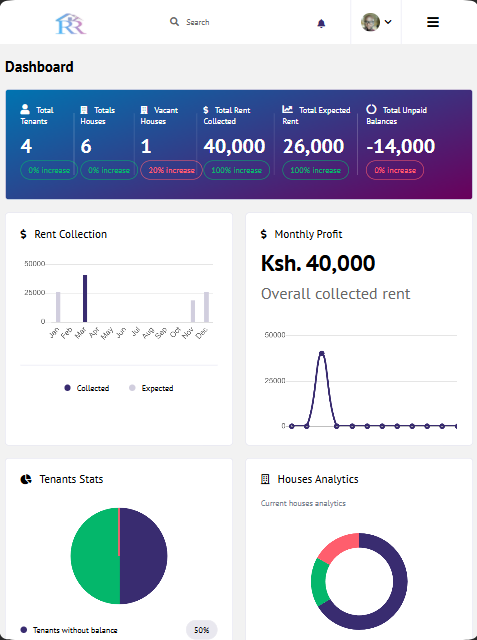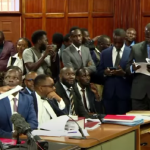Most of the proposed changes are slated to take effect from July 1, 2025, with some specific measures, like Advance Pricing Agreements (APAs) for transfer pricing, beginning on January 1, 2026.
Key New Taxes and Reforms:
The Finance Bill 2025 introduces a range of amendments to existing tax statutes, including the Income Tax Act, Value Added Tax Act, Excise Duty Act, Tax Procedures Act, and the Miscellaneous Fees and Levies Act. Here are some of the significant proposals:
1. Widening the Tax Net on Digital Economy:
Significant Economic Presence Tax (SEPT) : The scope of SEPT is expanded to include income derived from Kenya through businesses carried out via the internet or electronic networks, going beyond just digital marketplaces. The previous KES 5 million turnover threshold for non-resident persons subject to SEPT has been repealed, meaning more businesses will be liable.
Digital Asset Tax (DAT) : The rate for Digital Asset Tax is proposed to be reduced from 3% to 1.5%, a move that could be seen as an effort to foster the burgeoning digital asset sector while still generating revenue.
Expanded Definition of Royalty: The definition of "royalty" is being clarified to explicitly include regular payments for the use of software through distributors, addressing historical tax controversies.
2. Corporate and Business Taxation:
Limitation on Tax Loss Carryforwards : The Bill proposes a five-year cap on carrying forward tax losses, a significant change from the current indefinite period. This could impact businesses with fluctuating profitability.
Preferential Corporate Tax Rates : For start-ups certified by the Nairobi International Financial Centre Authority, a reduced corporate income tax rate of 15% for the first three or ten years (depending on investment size) and 20% for subsequent years is proposed.
Conversely, the preferential 15% corporate tax rate for local motor vehicle assemblers and companies constructing at least 100 residential units annually is repealed.
Investment Allowances : The 100% investment allowance for certain large capital investments, including hotel buildings and machinery used for manufacturing, is proposed to be removed.
Advance Pricing Agreements (APAs) : A framework for APAs will be introduced, allowing taxpayers to enter into agreements with the KRA on specific related-party transactions, aimed at mitigating transfer pricing risks and promoting tax certainty. This is set for implementation in 2026.
3. Value Added Tax (VAT) Adjustments:
Changes in VAT Status : There are proposals to reclassify certain goods and services between exempt and zero-rated status. Of particular note are discussions around agricultural inputs (like fertilizers), transportation of sugarcane, and packaging materials for tea and coffee. There have been concerns raised by stakeholders, particularly in the agricultural sector, that shifting some zero-rated items to exempt status could increase production costs and ultimately burden farmers.
VAT Refund Timelines : The timeline for lodging VAT refund claims is proposed to be reduced from 24 months to 12 months, and the Kenya Revenue Authority's (KRA) period for reviewing VAT refund claims will be extended from 90 days to 120 days (and up to 180 days if an audit is required).
4. Personal Income Tax (PAYE) Reforms:
Increased Per Diem Exemption : The tax-free daily allowance provided by employers for per diem expenses is proposed to increase from KES 2,000 to KES 10,000.
Mortgage Interest Relief : This relief is proposed to be extended to loans acquired for the construction of owner-occupied residential houses, not just purchases.
Personal Relief Application : A subtle but significant amendment proposes that all applicable deductions, reliefs, and exemptions be granted before calculating Pay As You Earn (PAYE). This could potentially alter the effective tax burden for some salaried workers.
5. Tax Procedures and Administration:
KRA Access to Data : The Bill proposes to grant the Commissioner access to taxpayers' data, including trade secrets and private data, without a court order, a move that has drawn concerns regarding privacy.
Waiver of Penalties and Interest : The Cabinet Secretary for Finance will be empowered to waive penalties and interests arising from errors caused by electronic tax systems or erroneous registration, starting from January 2026.
Public Sentiment and Outlook:
The government, having learned from the protests against the 2024 Finance Bill (which was eventually withdrawn), has made efforts to control the narrative around this year's bill, emphasizing a focus on broadening the tax base rather than introducing entirely new taxes. However, public scrutiny remains high, especially concerning proposals that could indirectly lead to increased costs of living or impact specific sectors. The Finance Committee's ongoing engagements with government agencies and stakeholders are crucial as the Bill nears its tabling in Parliament for debate and eventual assent by the President by the end of June 2025.








